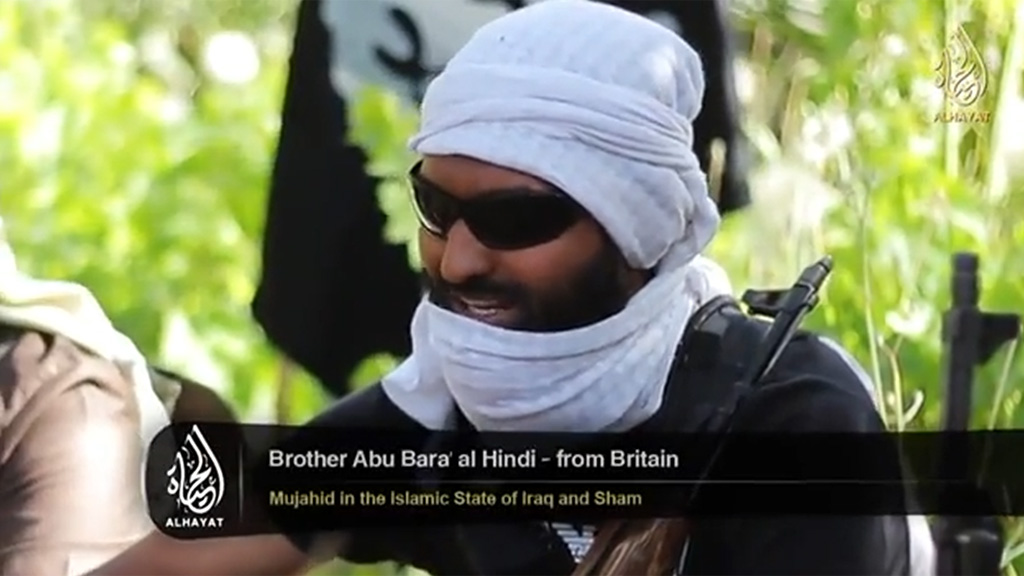Third ‘British jihadi’ was from Aberdeen
The third ‘British jihadi’ who featured in an Isis recruitment video has apparently been identified, as details emerge of a hardline Islamic sect linked to recruits.

Abdul Raqib Amin is said to be the third Briton who appeared in the video for the Isis group along with 20-year-olds Nasser Muthana and Reyaad Khan, who are both from Cardiff.
Mr Amin was brought up in Aberdeen after moving from Bangladesh and his family left the Scottish city about two years ago, according to the BBC.
He was identified as “Brother Abu Bara” al Hindi’ in the video which called for UK Muslims to join Isis in Iraq.
‘In shock’
A leading member of Aberdeen’s Muslim community, who did not want to be identified, said Mr Amin was not someone who “stood out in any particular way”.
“You hear about things like this in some cities down south but never in Aberdeen,” he added. “Obviously the community is in shock.”
The father of Nasser Muthana said his son had “betrayed” his country.

Ahmed Muthana believes his other son, 17-year-old Aseel, is also in the Middle East and said they were both “brainwashed” in the UK.
New pictures have emerged showing Aseel as a happy teenager who would become a militant Islamist extremist only a year later (see above image).
Details have also emerged of a hardline Islamist sect linked to two of the Britons in the video, which is claimed to be the fastest-growing sect in Britain.
Reyaad Khan and Nasser Muthana went to the Al-Manar Centre in Cardiff, which is aligned to an ultra-conservative wing of Islam called Salafi.
Salafi was also linked to the claimed “Trojan horse” plot by Islamist extremists to infiltrate schools in Birmingham.

Salafi teaches its followers to impose severe restrictions on how women live, and is also hostile to music, television and birthdays.
The Muthana brothers and their family used to attend a mosque aligned to the Sufi orientation, according to the Times, which is seen as more moderate.
Places of Salafi worship have increased by half over the last four years, according to the paper.
Innes Bowen, who wrote a study called Medina in Birmingham, Najaf in Brent, said the simplicity of the Salafi message is often appealing to people wishing to convert.
According to the study, almost 100 mosques in the UK are now under Salafi control and half of all mosques could be under its influence within a generation. It says Salafis have already taken control of some Islamic societies at universities.
-
Latest news
-
Taylor Swift’s new break-up album breaks records3m

-
NHS trust fined £200K for failings that led to death of two mental health patients3m

-
Sunak vows to end UK ‘sick note culture’ with benefit reform3m

-
‘Loose talk about using nuclear weapons is irresponsible and unacceptable’, says head of UN’s nuclear watchdog3m

-
‘There wasn’t an Israeli attack on Iran,’ says former adviser to Iran’s nuclear negotiations team7m

-




